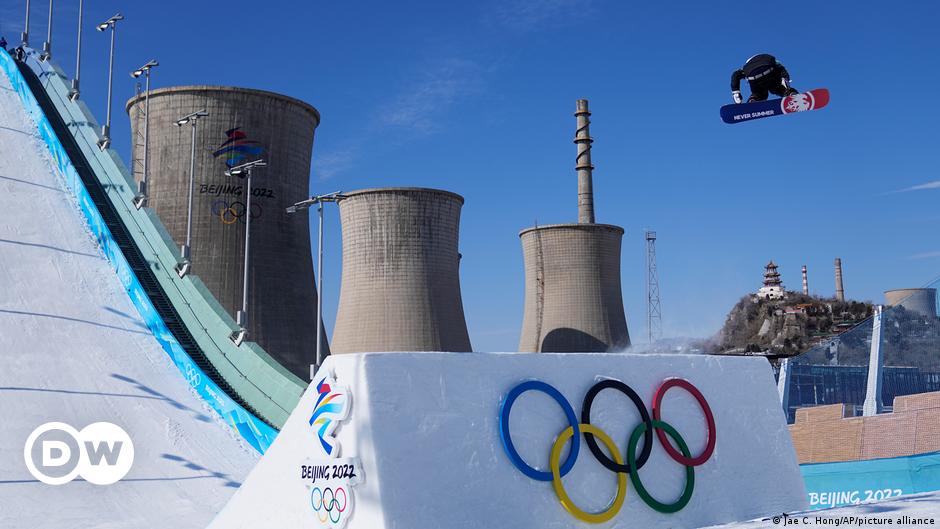
What is the legacy of these Winter Games?
Answering such a question might be easy enough when you’ve got a medal around your neck. Or when your imagination has been caught; you’ve been excited, anxious, disappointed or jubilant.
After all, emotion is sport’s greatest attraction. Even with journalistic distance, it is this that can sometimes cover up everything else — the political background in the host country, for example, or the environmental damage. That’s why “sportswashing” is seen as an effective strategy.
China’s Winter Games could be a turning point in this respect, because the surge of emotion just didn’t arrive. Instead, the spectacle, though well organized, looks like a veil that has been washed too often. It is pale and threadbare. Through it, the dubious structures of the Olympics are clearly visible.
Is it all normal?
Sure, these two weeks have also produced new stars, like Eileen Gu, a double Olympics champion at 18. There have also been glimpses into the abysses of top-class sport, particularly in the case of the young figure skater Kamila Valieva, from Russia. From a German perspective, there were sensational victories: cross-country gold for Katharina Hennig and Victoria Carl, for example, and an almost uncanny series of gold medals in sliding sports.
That venue in particular is a good example of why criticism won’t die down. Those watching and who have seen the monstrosity in what was once a nature reserve know full well, even without in-depth research, that sustainability wasn’t really a factor. It’s the same old story.
Just as old is the dismay about the politics of the International Olympic Committee (IOC). Cooperation with rulers like Vladimir Putin (Sochi 2014) and Xi Jinping is all too familiar. In order to have a smooth Winter Games, President Thomas Bach and his organization don’t pay too much attention to respecting human rights or freedom of expression. So it’s been this time around. Bach’s statements on the tragedy of Valieva and the possible introduction of a minimum age at the Olympics are hypocritical; he could have managed the latter long ago. The IOC was also uninterested in the fact that the teams of several countries bought disposable mobile phones in fear of Chinese spying.
China uses its platform
And China? The hosts used the Games for propaganda, as intended. The honor of carrying the Olympic flame was bestowed on cross-country skier Dinigeer Yilamujiang, among others. She is Uighur, the Muslim minority from which tens of thousands are interned in re-education camps by the government in Beijing. This fact was simply brushed aside as a “lie” by Yan Jiarong, the spokesperson for the Olympic organizing committee. Instead, in keeping with China’s plan, she twisted the political context by calling the democratic island state of Taiwan “an inseparable part of China”.
Dinigeer Yilamujiang (left) was a controversial choice to carry the Olympic torch
On top of all that, there was the pandemic, which meant the absence of most spectators while athletes, the media and officials all lived in a bubble for three weeks. Strictly shielded and constantly tested, the number of coronavirus cases was kept to a minimum.
Successful as it was, it had a negative impact on the mood of many involved. “Now everyone has had enough and is looking to get out of here,” said Germany’s Alpine Skiing Director Wolfgang Maier on the penultimate day of the competitions.
If athletes and sports officials feel this way, how can fans and observers feel any different? There was no sign of the magic that the Olympics often unleash which can even override the criticisms. Games like the one in Beijing run the risk of becoming one thing: irrelevant.
This article was adapted from German








